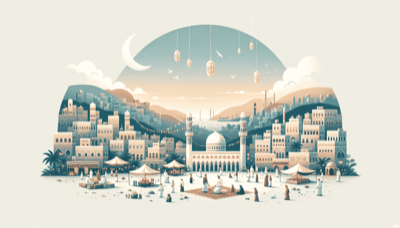We're here to help you keep count of the days to or since a date. Just click the button below and enter your chosen date to get started. Also choose the suggested days or search for a special day above #countingthedays

Eid al-Adha, also known as the "Festival of Sacrifice," is one of the two most important Islamic holidays celebrated worldwide, with the other being Eid al-Fitr. In Yemen, as in other Muslim-majority countries, Eid al-Adha holds significant religious and cultural importance.
Eid al-Adha commemorates the willingness of Ibrahim (Abraham) to sacrifice his son as an act of obedience to God's command. However, before he could carry out the act, God provided a ram to sacrifice instead. The holiday thus honors this act of faith and submission.
On this day, Yemenis engage in several traditional activities:
Prayer: The day begins with morning prayers at mosques or open spaces, where large congregations come together in unity.
Sacrifice: Following the tradition of Prophet Ibrahim, those who can afford it sacrifice an animal such as a sheep, goat, or cow. The meat is then divided into three parts: one part for the family, one for relatives and friends, and one for the poor and needy.
Charity: Giving to those less fortunate is a significant aspect of Eid. It is customary for Yemenis to distribute meat and other forms of charity to ensure that even the poor can celebrate the feast.
Feasting: Families gather for festive meals, sharing dishes made from the sacrificed animal.
Dress and Socialization: People wear new or their best clothes and visit relatives and friends. Children often receive gifts or money.
During Eid al-Adha:
Businesses and government offices typically close for several days.
There is an emphasis on forgiveness and reconciliation among people.
The celebration period provides a time for reflection on faith and offers an opportunity for families and communities to come together in peace and gratitude.